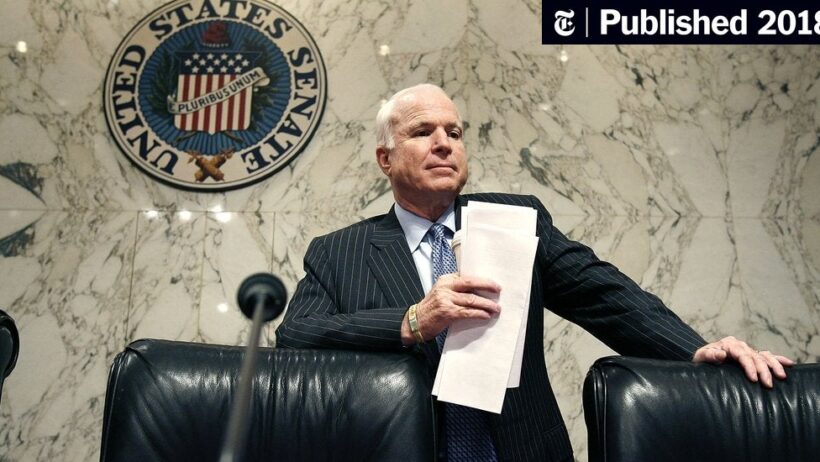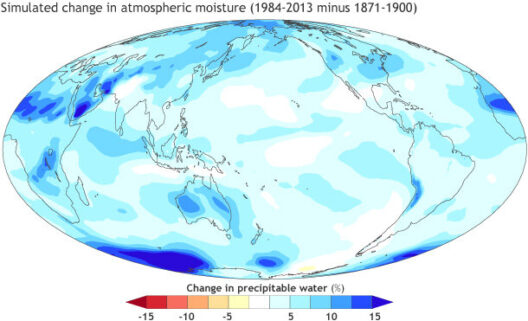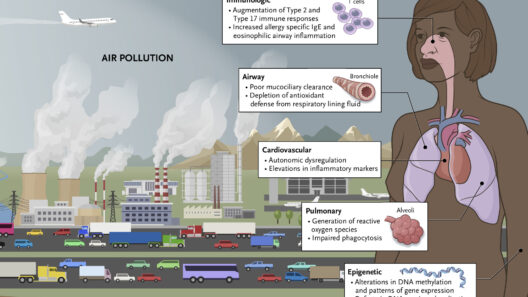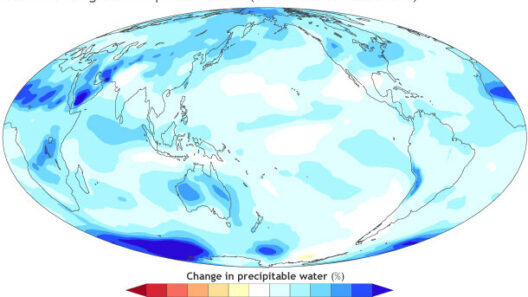Does John McCain, the late U.S. Senator and a reputed maverick, truly believe in global warming? This question transcends mere political affiliation; it touches upon the essence of climate action in a rapidly changing world. As we delve into McCain’s perspective on climate change, we encounter a complex tapestry woven with conviction, pragmatism, and the hallmark maverick spirit that defined his political life.
John McCain’s association with climate change reform began to crystallize in the early 2000s as scientific consensus on global warming became more pronounced. Acknowledging climate change as an existential threat was a foundational aspect of his advocacy. He upheld that human activity significantly contributes to the elevated levels of greenhouse gases, thus exacerbating global warming. This recognition placed him in a somewhat contentious position within a Republican Party that often espoused skepticism regarding climate science. Interestingly, McCain’s stance diverged from the party line; he espoused a belief in the need for comprehensive climate policy, which was rather radical for a senator from Arizona.
In the context of a political landscape fraught with controversy over climate issues, it is worth pondering: should a politician like McCain, whose fame stemmed from maverick defiance, have taken a more decisive lead on climate legislation? After all, leadership in the realm of environmental policy often entails navigating choppy waters of partisan disagreement and industry lobbying. McCain proposed several legislative measures aimed at curbing carbon emissions, such as the McCain-Lieberman Climate Stewardship Act of 2003. This bill sought to cap greenhouse gas emissions in a bid to reduce global warming’s impact. Yet, despite its innovative premise, it struggled to gain traction amidst vigorous opposition.
His views on climate change evolved as he engaged with various stakeholders and scientists, who emphasized the urgency of addressing environmental degradation. McCain delivered powerful speeches advocating for renewable energy development, arguing that it would not only combat climate change but also bolster national security by reducing reliance on foreign oil. It raises an intriguing challenge: can a politician effectively champion an environmental agenda within a party that frequently dismisses it? McCain attempted to reconcile this paradox through his unique blend of bipartisan collaboration. His interactions with environmental groups, as well as businesses, illuminated his commitment to seeking pragmatic solutions rather than rigid ideologies.
As a senator, McCain consistently framed climate change as a pressing national security issue. He often articulated that the threat emanated not only from climate impacts like extreme weather events but also from geopolitical conflicts exacerbated by resource scarcity. This perspective emphasized the need for visionary leadership. His advocacy for the expansion of nuclear energy as a low-carbon energy source exemplified his willingness to embrace diverse solutions to mitigate climate change, challenging conventional alignments within his party.
Notably, McCain’s climate activism extended beyond rhetoric; it manifested in various policy initiatives. The establishment of the Climate Change Task Force in the Senate, under his guidance, aimed at fostering innovative discussions and recommendations on climate action. He sought to engage both Democratic and Republican senators to converge on a shared understanding of the climate crisis, showcasing another facet of his maverick identity—building coalitions. However, one may question the efficacy of such efforts: in an arena besieged by ideology and partisanship, could they resonate with the broader populace?
McCain faced significant pushback during his tenure. For instance, his commitment to climate legislation was often shadowed by the robust influence of fossil fuel industries, casting doubt on the prospect of substantial policy reform. Yet, his unyielding dedication to the cause remained commendable. He may have inherently understood that advocating for climate action can be likened to planting seeds in rocky soil—time-consuming, fraught with setbacks, yet ultimately rewarding if nurtured with perseverance.
In years following his presidential campaign in 2008, McCain continued to advocate for climate management, emphasizing the importance of global cooperation. He recognized the necessity of an international approach to climate change, elucidating that global warming does not recognize national borders. Such an outlook aligns with the broader consensus that climate change is a collective challenge needing comprehensive international solution sets. However, that begs a question: how would McCain have navigated the evolving political landscape vis-à-vis climate diplomacy? Would he have been an ardent proponent of international accords, or would he have succumbed to the divisive politics of the era?
In his tenure, a salient pattern emerged: McCain showcased an unwavering belief in science and empirical data, framing climate change discussions around facts rather than political narratives. He poignantly reminded many of the gravity of climate repercussions, from rising sea levels endangering coastal communities to diminishing ice caps threatening biodiversity. Even more compelling is the idea that an individual, irrespective of their political standing, can influence discourse on climate change. Perhaps therein lies the crucial takeaway from McCain’s legacy: that maverick spirit can catalyze transformative change.
Ultimately, John McCain’s stance on global warming urges a reflection not solely on his beliefs but on the broader implications of partisanship in environmental policy. His journey underscores an essential truth: climate change transcends politics; it demands urgency, collaborative action, and visionary leadership. As the world grapples with an increasingly precarious climate, how might McCain’s legacy serve as a blueprint for future leaders? Will they have the courage to innovate, unite, and confront this existential challenge head-on, mirroring the maverick spirit McCain embodied?








